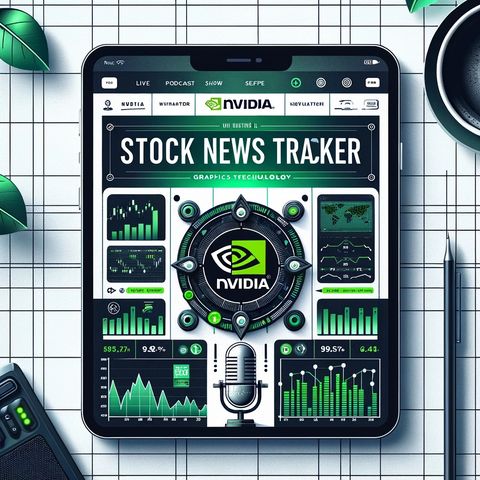Nvidia's AI Dominance Faces Valuation Concerns: Navigating the Risks and Opportunities

Download and listen anywhere
Download your favorite episodes and enjoy them, wherever you are! Sign up or log in now to access offline listening.
Nvidia's AI Dominance Faces Valuation Concerns: Navigating the Risks and Opportunities
This is an automatically generated transcript. Please note that complete accuracy is not guaranteed.
Description
Nvidia Corporation (NASDAQ: NVDA) has long been hailed as a frontrunner in the artificial intelligence (AI) sector, consistently garnering positive attention from Wall Street analysts. However, despite the bullish outlook,...
show moreNvidia's core business, heavily centered around graphics processing units (GPUs), has seen substantial growth thanks to their applications in AI, gaming, and data centers. The company’s GPUs are pivotal in machine learning models and computational tasks, making it a critical player in the AI technology landscape. This success has translated into impressive financial performance, with strong revenue growth and expanding profit margins.
Wall Street analysts remain optimistic about Nvidia's future, citing its innovation pipeline and the expanding adoption of AI across various industries. The bullish sentiment is also driven by Nvidia’s strategic acquisitions and partnerships, which are expected to bolster its technological capabilities and market reach. Furthermore, the company's recent ventures into the automotive sector with AI-driven solutions for autonomous vehicles also present potential long-term growth opportunities.
Despite this optimism, there are valid concerns regarding Nvidia’s current stock valuation. Trading at around $116.00 per share, Nvidia’s market price reflects a premium valuation. The stock's price-to-earnings (P/E) ratio and other valuation metrics suggest that it is priced for perfection, leaving little room for error. This rich valuation may not be sustainable if Nvidia fails to meet the high growth expectations set by the market.
One of the main issues is the cyclical nature of the semiconductor industry. Profits and revenues in this sector can be highly variable based on broader economic conditions and supply chain dynamics. A downturn in the industry or macroeconomic uncertainties could impact Nvidia’s performance more than projected, posing a risk to its current high valuation.
Moreover, the competitive landscape for AI and high-performance computing is intensifying. Companies like Advanced Micro Devices (AMD) and Intel are investing heavily to close the gap with Nvidia. Declining market share or increased pricing pressure in core segments could adversely affect Nvidia's growth trajectory and justify reevaluation of its stock price.
Additionally, regulatory challenges and geopolitical tensions could also pose risks. Nvidia’s business operations are global, and any trade restrictions or regulatory hurdles could impede its supply chain and market access, particularly in significant markets such as China.
In summary, while Nvidia remains a titan in the AI
Information
| Author | QP-4 |
| Organization | William Corbin |
| Website | - |
| Tags |
Copyright 2024 - Spreaker Inc. an iHeartMedia Company
